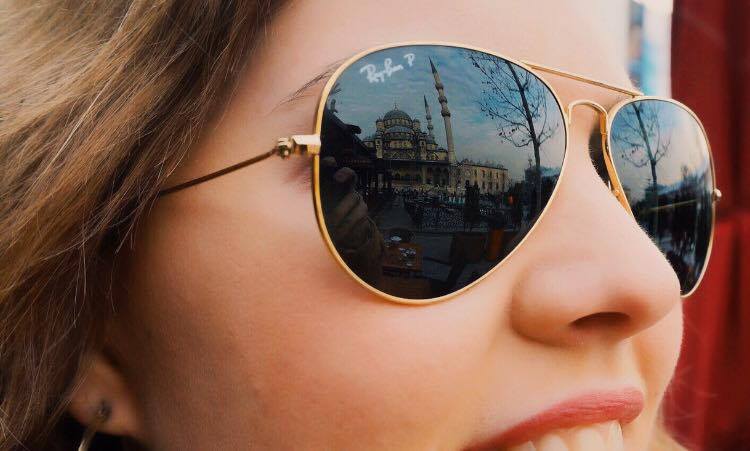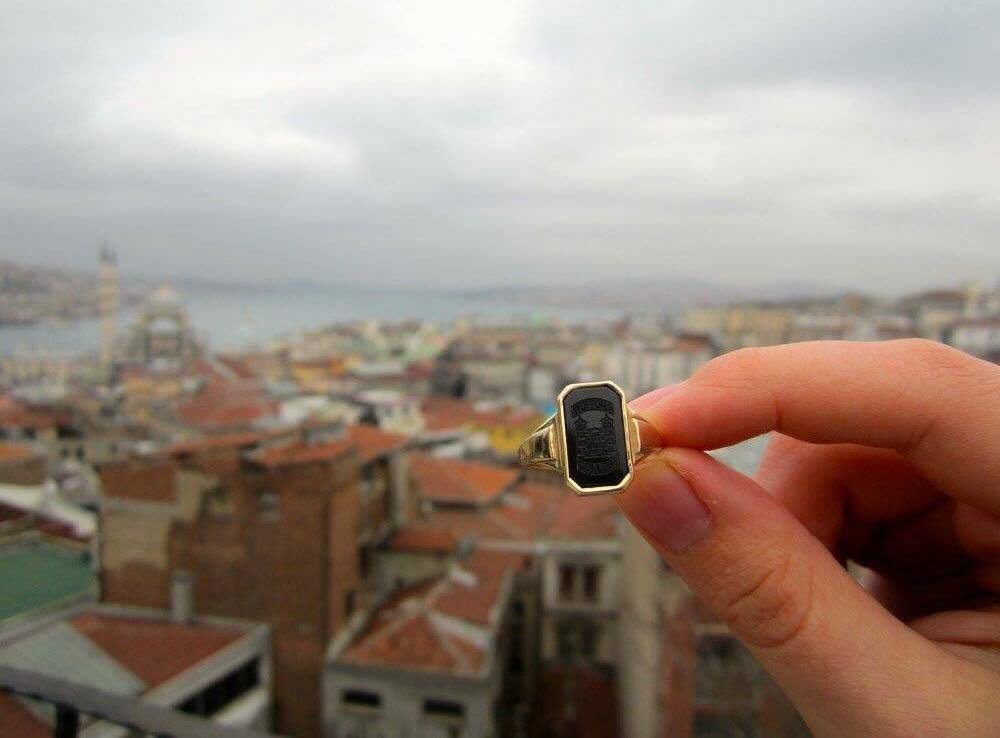By Maggie Stewart, Contributing Writer
The scenes of the suicide bombing were both gruesome and captivating. The shaky phone videos of smoke, broken glass and bodies were the images that were projected all around the world after the Brussels bombing. However, just days before, a similarly horrific scene played out in Istanbul.
At approximately 11:00 a.m. on a Saturday, an ISIS sympathizer blew himself up in Taksim, one of the main shopping districts in Istanbul, killing five and injuring 36, with seven of those victims’ injuries being severe. Two of the victims were Israeli-American dual citizens and one was a toddler. Did you hear about it? No? I’m not surprised. I am an optimistic person. I try to see the good in everyone and try to find the silver lining in every situation. But following the March 19 ISIS suicide bombing, I felt hopelessness towards the world.
Fortunately, on the day of last month’s bombing, I was traveling outside of Istanbul with my family who was visiting me while I am studying abroad in Turkey, but naturally I was worried about my friends back in Istanbul, since Taksim is a popular place for us to go to on weekends (it’s only about a 15 minute walk from our apartment). As I began frantically searching all of my news apps for updates (I even turned on my international data roaming…that’s when you know it’s real), I found very little.
In fact, I didn’t get a “breaking news” update from the Washington Post on the bombing until almost an hour after it happened (no other Western news source deemed it important enough to make it “alert worthy”). The New York Times did not even have the Istanbul bombing in their breaking news category. Instead, I had to dig through the Times’ World section and finally found a measly report on it, coming in a close second to a fascinating and riveting article on the Pope’s new Instagram account.
You are understanding this correctly: a bombing carried out in a huge, metropolitan city, killing innocent civilians by a militant of the Islamic State, one of the most dangerous and successful terrorist groups in history, was secondary news compared to the Vatican’s new social media endeavor.
It is difficult to change the focus on what the U.S. media reports, primarily due to the raw fact that news companies are businesses. The more viewers, the higher the ratings. The media will report on what we want to hear. We, in turn, change our Facebook profile pictures to have an overlapping French or Belgian flag or light up our national landmarks to show solidarity with victims. The Eiffel Tower was never lit up in red and white.
Now you may be thinking, “But Maggie, so few people died in the Istanbul bombing compared to Brussels or Paris.” True. But what about the other Turkish bombings? The week before the Taksim bombing, there was one in Ankara, Turkey’s capital, during rush hour that killed 37 and injured 125. In February, Ankara fell victim to another bombing (30 dead; 60 wounded). In January, a few days before I arrived here, a suicide bomber detonated himself, killed 13 tourists and injured 14 others in the heart of Istanbul’s historic district—steps away from the historic Blue Mosque and Hagia Sophia. The most deadly, though, was the one in Ankara last October where two bombs were detonated during a political rally, killing 103 civilians and injuring more than 400.
These bombings, conducted by ISIS and other terrorists, took a total of 195 lives. There have been four suicide bombings in Turkey since the start of this year. And these don’t even include the countless bombings in the southeastern region of Turkey that is being paralyzed by the ongoing conflict between the Turkish government and the PKK, a Kurdish terrorist group.
Arriving back in Istanbul, my family and I were exploring the Grand Bazaar, a main tourist destination, when a security officer came up to my dad, looked him straight in the eye with a mixture of pleading, bewilderment and anger, and said, “Why does America not care about our bombings?” How do you respond to that? Do you say, “Oh, well, you are different from us Americans; we don’t need to pay attention to you and your problems. Yes, the same thing happened in Brussels and Paris, but they are Westerners and deserve our compassion. But you? No.”
Obviously, this is not how the conversation played out. So what do you say? How do you explain to an innocent person whose home is being attacked that the West is more concerned with the Pope’s Instagram account than innocent lives being taken by terrorists? Turks feel ostracized and unworthy, and how can you blame them?
We are Americans. We are supposed to be the good guys. But to be frank, many people do not see us in that light on this side of the pond.
The evening of the Brussels bombing, I received a Wofford-wide email, updating us that two of our students in Brussels were safe. Like the rest of the Wofford community, I was relieved to know that two fellow Terriers were accounted for. But where was the school-wide e-mail about Istanbul? I hope it just got lost in cyberspace. By the end of the day of the Istanbul bombing, the only outreach I received from Wofford was a worried and heartfelt e-mail from Dean Lancaster checking in on me. That is an example of the Wofford community we so value.
Within three days of the Brussels attack, GoUpstate published an interview with the two Wofford students about their experiences. I’m still waiting for an e-mail from a GoUpstate journalist. Maybe that e-mail also got lost in cyberspace.
Personal safety is a constant concern while in Turkey. I have to change my daily travel patterns. I get security updates from a private security firm and the State Department multiple times a week. I take side streets rather than main thoroughfares. My friends and I cannot travel in large groups in fear that we too may fall victim to attacks aimed at Westerners. I have eliminated public transportation to get around in a city that makes Manhattan look like Mayberry. Every day I am reminded and conscious of daily (though statistically minuscule) terrorist threats that others around this region have been forced to experience for over a decade.
Don’t get me wrong—I love Istanbul and am grateful to have the experience of being here for the semester. It is an incredible city in a one-of-a-kind country with a remarkable culture and brilliant people. I believe what I have learned will not only color the rest of my studies in the government and religion departments at Wofford, but will always be with me as I embark on my career and future.
However, the juxtaposition of the outpouring around Brussels and the lack of empathy for Turkey and so many other countries in this region has become much more clear and prevalent during my time here. The Wofford community has the opportunity to become more aware that suffering is not contained to Western Europe. The bombings in Istanbul and Ankara were just as shocking to the Turks as the bombings were in Paris or Brussels to the French or Belgians. All of these thriving cities are the social and cultural anchors to their respective countries. They are certainly not war zones, and none of these bombings should be looked at as more or less important—they just need to be cared about equally.
During both the Paris or Brussels bombings, we were updated every five minutes with breaking news alerts on our phones. Certainly, the Brussels and Paris bombings were horrific. But so were the two in Istanbul. And the three in Ankara. And the Easter bombing in Lahore. And the daily bombings in Baghdad. They are equally appalling. But they don’t seem equal. The West and America are not making them equal.
My challenge for you is this: pay attention to the world. Show compassion for the world…the whole world, not just the West and America. Look at Africa, or Latin America, or Central Asia, or the Middle East and everywhere in between. And in that world news, strange places you and I have never heard of, nor even knew existed, will surface. Learn about the strange places and its people and if you have the chance, travel there. On your adventure, you will find more commonalities than differences and will learn that all people from all around the world do not deserve what many endure everyday.
We are Wofford students. We are being educated and prepared to be leaders and hopefully even change the world. But we cannot begin our work without knowing the world we are going to change. So scurry off and grab a newspaper (or open the news app on your phone), world-changing Terriers, and start reading. Let’s be the educated leaders we are and begin caring for—or at least recognizing—our entire world.
Caption: “Personal safety is a constant concern while in Turkey. I have to change my daily travel patterns. I get security updates from a private security firm and the State Department multiple times a week. I take side streets rather than main thoroughfares.”






























